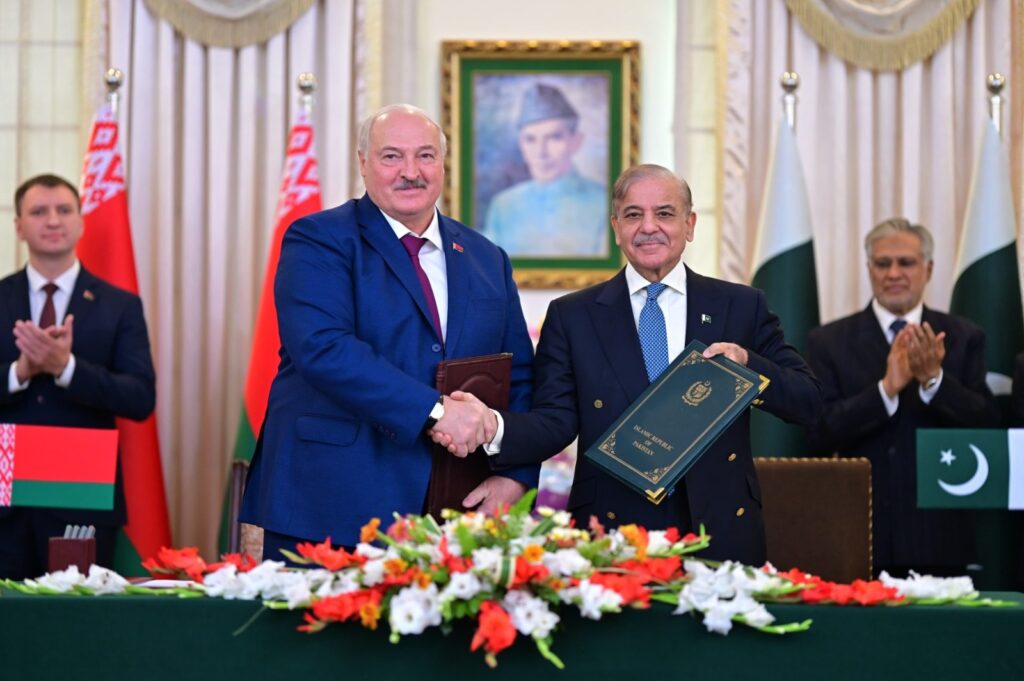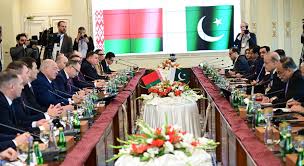
During his visit to Pakistan, Belarusian President Aleksandr Lukashenko emphasized the importance of deepening bilateral collaboration in high-tech sectors, including agricultural machinery, mining, information technology, and heavy machinery manufacturing. This visit marked a significant step toward advancing technological cooperation between the two nations.
President Lukashenko highlighted Belarus’s technological expertise, stating that in today’s world, even smaller countries like Belarus possess advanced technologies, alongside larger nations. He expressed Belarus’s eagerness to share its modernized technologies with Pakistan, not only in the present but also in the future. He said, “We are ready to share our technologies — we have them, we are modernizing them, and we want to share them with you.”
Both sides recognized the potential for collaboration in the production of high-tech agricultural machinery, an area where Belarus holds a strong global position. Given Pakistan’s agriculture-driven economy, the two countries agreed to explore joint ventures in this field, aiming to introduce innovative agricultural solutions to Pakistan’s farmers and enhance productivity through advanced machinery.

President Lukashenko also underscored the opportunities for cooperation in the automotive sector, particularly in the manufacturing of heavy-duty trucks and electric vehicles. Both countries agreed to collaborate on the sales, manufacturing, and servicing of vehicles, leveraging Belarus’s automotive technology and Pakistan’s manufacturing capabilities. Public and private sector partnerships were also discussed to drive these initiatives forward.
The visit also focused on enhancing connectivity and logistics, with both sides emphasizing the importance of optimizing transportation networks to facilitate smoother trade. A memorandum of understanding (MoU) was signed between Pakistan’s National Logistics Corporation (NLC) and Beltamozhservice, aimed at streamlining maritime and land routes. This agreement is expected to reduce trade costs and improve the efficiency of trade between the two countries.
In addition to trade and industrial cooperation, the two countries agreed to collaborate in the fields of science and technology, signing two agreements for joint scientific projects under the framework of the Joint Commission on Science and Technology. These projects are set to foster innovation and knowledge exchange in critical areas, further solidifying the technological partnership between Belarus and Pakistan.
Further, both nations committed to expanding trade in pharmaceutical products, medical devices, and health-related items. Addressing regulatory barriers to market access, they discussed the importance of enhancing trade facilitation and creating policies that would streamline the exchange of these products.
Both sides also agreed to foster cultural exchanges and strengthen educational ties, including the promotion of programs in agricultural manufacturing. The goal is to not only boost technological cooperation but also enhance people-to-people connections through art, music, literature, and other cultural activities.
At the conclusion of the visit, 15 significant agreements and MoUs were signed, including the “Roadmap for Comprehensive Cooperation between Pakistan and Belarus for 2025-2027.” This roadmap outlines a clear framework for future collaboration, emphasizing technology transfer, scientific cooperation, and joint ventures in sectors critical to both nations’ economic growth.
The signing of these agreements marks a new chapter in Belarus-Pakistan relations, with both countries committed to deepening cooperation in key sectors of mutual interest, such as technology, manufacturing, and trade. – ERMD
